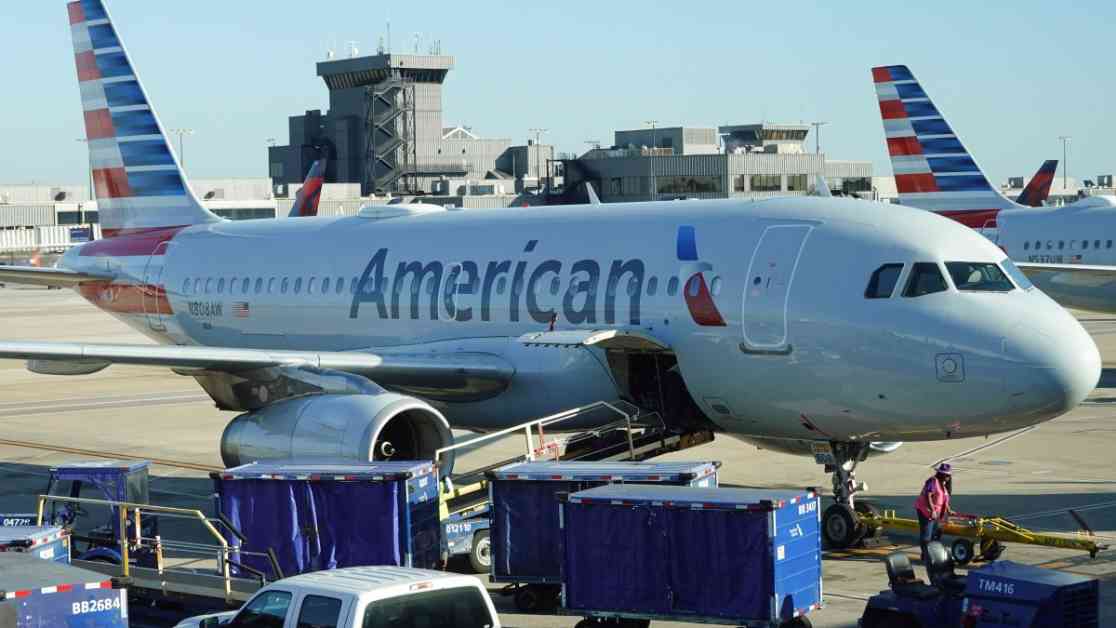American Airlines Flights: Navigating the Christmas Eve Travel Turmoil
American Airlines recently faced a turbulent start to the Christmas holiday as a technical glitch caused a temporary grounding of its flights, disrupting travel plans for countless passengers during one of the busiest times of the year. The airline swiftly issued a travel alert, aiming to offer flexibility to impacted travelers as they grappled with the unexpected chaos.
Vendor Technology Woes Disrupt Holiday Travel Plans
The airline attributed the disruption to a “vendor technology issue” that led to a brief halt in its flight operations on Christmas Eve morning. Despite managing to swiftly resolve the problem, American Airlines acknowledged the inconvenience caused to its customers and took swift action by introducing a travel alert to alleviate the situation.
Travel Flexibility Guidelines for Affected Passengers
In a bid to assist passengers facing travel woes, American Airlines announced that it would waive change fees for individuals who had purchased tickets by December 23 for travel on December 24. The waiver extended to travelers across all fare classes, including Basic Economy, provided they adhered to specific guidelines:
– Booking changes must be made on December 24 for travel between December 24 and December 26.
– The origin and destination cities should remain unchanged.
– Travelers must refrain from canceling trips and requesting refunds.
– The affected passengers must be flying on American Airlines flights.
Cities Affected by the Travel Alert
The cities identified for travel flexibility included major hubs such as Austin, Boston, Charlotte, Chicago, Dallas-Fort Worth, Los Angeles, Miami, New York, Philadelphia, Phoenix, and Washington D.C. American Airlines assured that a one-time change allowance would be granted to qualifying flights in these locations.
The Aftermath: Delays, Cancellations, and Passenger Struggles
Following the technical glitch, American Airlines flights were temporarily suspended across the United States until federal regulators cleared them for takeoff. The resulting chaos led to 1,447 delays and 28 cancellations, with snowfall in New York and rain in Dallas-Fort Worth exacerbating the situation.
Passengers navigating the holiday travel rush encountered the added stress of cancellations and delays, with major airports like Dallas-Fort Worth, Charlotte, Washington, New York, Chicago, and Miami bearing the brunt of the disruptions.
In the midst of this travel turmoil, the Transportation Department’s new rule mandating automatic cash refunds for canceled or significantly delayed flights came into effect. While passengers could opt for refunds, rebooking remained a viable alternative during peak travel periods to avoid exorbitant last-minute fares.
As the holiday season approached its peak, the Federal Aviation Administration’s grounding of American Airlines flights magnified the challenges faced by millions of travelers, raising concerns about the far-reaching impact on the travel industry during this critical period.
From bustling airports to congested highways, the holiday travel landscape painted a picture of resilience and adaptability as passengers navigated unforeseen obstacles to reunite with loved ones. As the festive spirit blended with travel woes, a sense of solidarity emerged among travelers, underscoring the shared experiences that define the holiday season.
In a world where disruption is inevitable, the resolve of holiday travelers shines bright, illuminating the path ahead with hope, resilience, and the unwavering spirit of the season.


